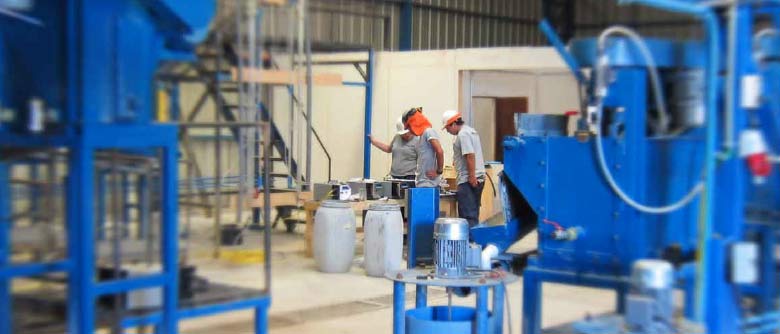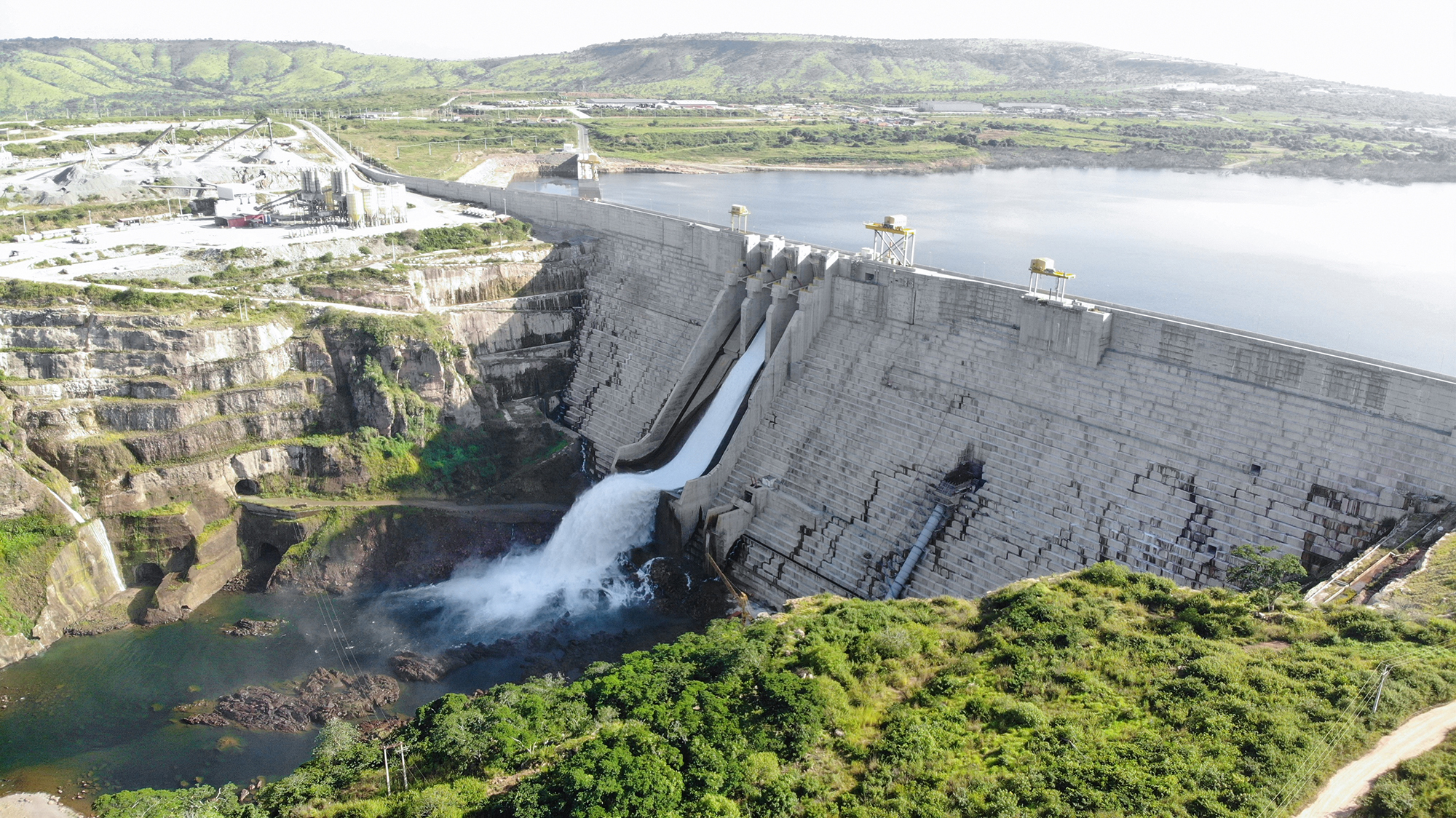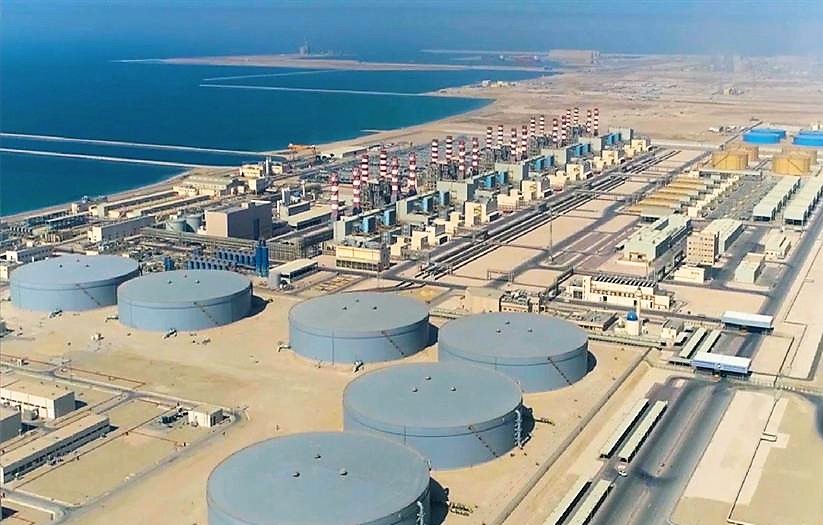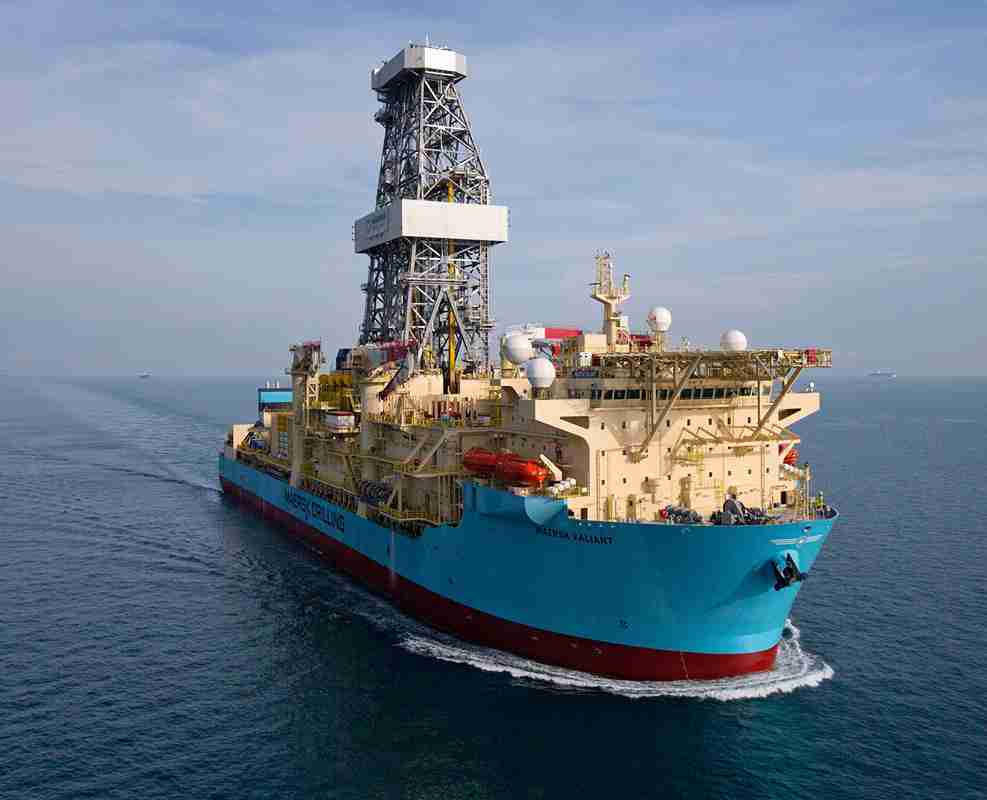
When we last spoke to Roger Amelunxen, owner of Canadian-based Amelunxen Mineral Processing (Aminpro), in March 2012, he spoke about the raft of changes that has occurred in his field of expertise over the previous 15 years. Now, as we enter 2013, he is just as keen to discuss how the business has evolved in little more than 10 months since.
“In the time since we last talked,” he states, “we have begun work at our pilot plant and this has resulted in considerable growth for the business, with our workforce increasing to almost 100 people and our sales figures tripling. This has partly been as a result of the tremendous level of interest in what we do here in Chile from companies in Europe and the US. This interest has led to Aminpro undertaking work with phosphate ores and graphite processing, something that was unheard in Chile before now.”
Established in 2000, Aminpro has since provided consulting services on a global scale to the mineral processing industry. It has done so both on its own and in partnership with other leading entities such as Minnovex Technologies, Hatch Engineers, Fluor, JKTech and Project Nexus. “Today,” explains general manager, Leonardo Flores, “we are in a position to provide both laboratory pilot test work and engineering consulting for most of the stages in the value chain of a mining project.”
A major development within the business that has given Aminpro the ability to provide this complete service offering was the creation of Tailpro Consulting, a new business within the company. “What Tailpro has allowed us to do,” Amelunxen continues, “is provide a wide range of specialist tailings testing solutions, both on a laboratory and industrial scale.”
Generally, almost 99 percent of a metalliferous based ore that goes through a processing plant is an uneconomical waste material. “Every mine,” explains general manager of Tailpro, Jon Engels, “is required by law to manage and store their tailings in an environmentally safe way and they tend to do this by storing them in earth-filled retaining dams. What the industry is particularly concerned with now is the consumption of water in mineral processing and with finding methods of reducing the amount that is sent to tailings storage facilities.”
Focused on supporting the existing work of Aminpro, Tailpro is looking into methods of recovering more water that can be sent back to the processing plant to be reused. By identifying such methods the industry will not only be able to reduce levels of water consumption, but also reduce the threat of instability when it comes to the dams used to store waste materials.
“What you have to remember,” Amelunxen says, “is that most mines in Chile are located within the high Andes where water levels are already running low. In fact, it has gotten to the point where some mines are pumping ocean water or desalinated ocean water over 200 kilometres and up some 3000 metres above sea level to their locations in order to fuel their processes. The sheer cost and complexity of such a process makes it all the more important that they find ways of saving water. It is this urgency that is attracting the attention of people within the mining sector to the work we are doing here.”
Another major project for Aminpro sees it working in unison with other companies to develop new techniques for test work. “As ore bodies throughout the world become more and more depleted,” Amelunxen highlights, “more tonnage is being treated and more tests are required to forecast production levels, and the test work required can prove expensive. What we are doing is coming up with methods of doing test work in a faster, more efficient and more cost effective manner. It is this work that we believe will result in huge changes in how ore bodies are developed over the next decade.”
While the industry continues to undergo dramatic changes, many of Aminpro’s core philosophies and practices remain the same. “Here at Aminpro,” Flores enthuses, “we are very proud of the responsible approach we take towards the community here in Chile. Just one of the things we do is sponsor a technical high school where young people are taught the skills that will allow them to enter the industry after they finish school. What we do is provide these individuals with on-site experience where they partner with our own technicians and more often than not this results in these youngsters coming back to work for us once their education is complete. This is one of the ways that we continue to develop what is, at the end of the day, our key asset and that is our people.”
As Aminpro’s operations in Chile flourish, it has begun to cast its eye towards areas where it can expand further as a business. This has led to the creation of Aminpro Peru, a new company that is set to begin mobilising employees imminently into a market that it sees as possessing tremendous growth potential.
Looking further ahead, the company also admits that it already has its eyes set on establishing itself elsewhere within Latin America, following a successful start-up of Aminpro Peru. As Amelunxen concludes, this incredible growth has not gone unnoticed. “We are increasingly being approached by companies inquiring as to whether we are for sale or not. The truth though is that with the amount of ideas we have, the expansion plans we have and the work we are doing with new technologies, we are just having far too much fun right now to seriously consider it.”
Written by Will Daynes, research by Richard Halfhide



 Aminpro-Americas.Mining-Feb13-Bro-s.pdf
Aminpro-Americas.Mining-Feb13-Bro-s.pdf









